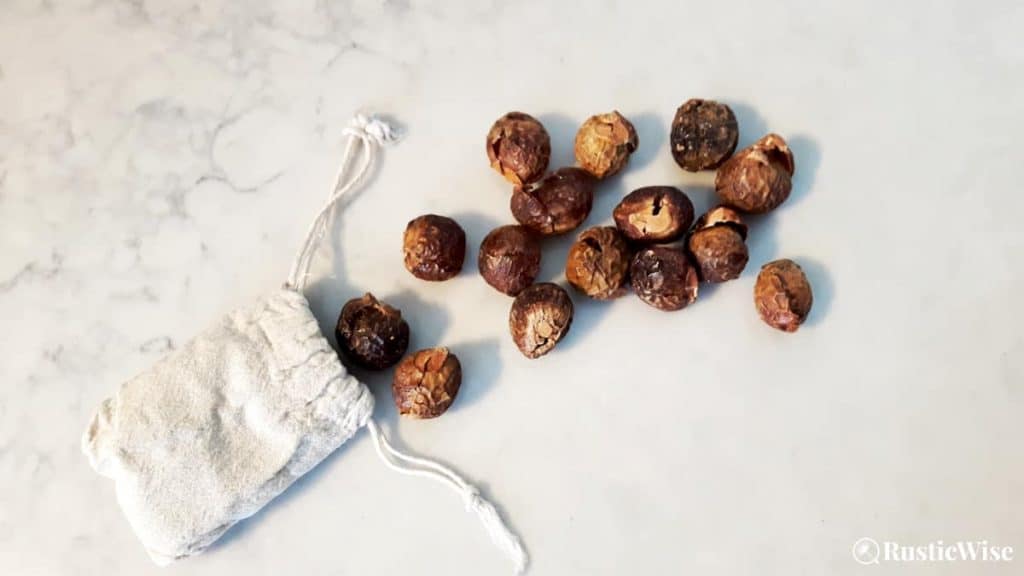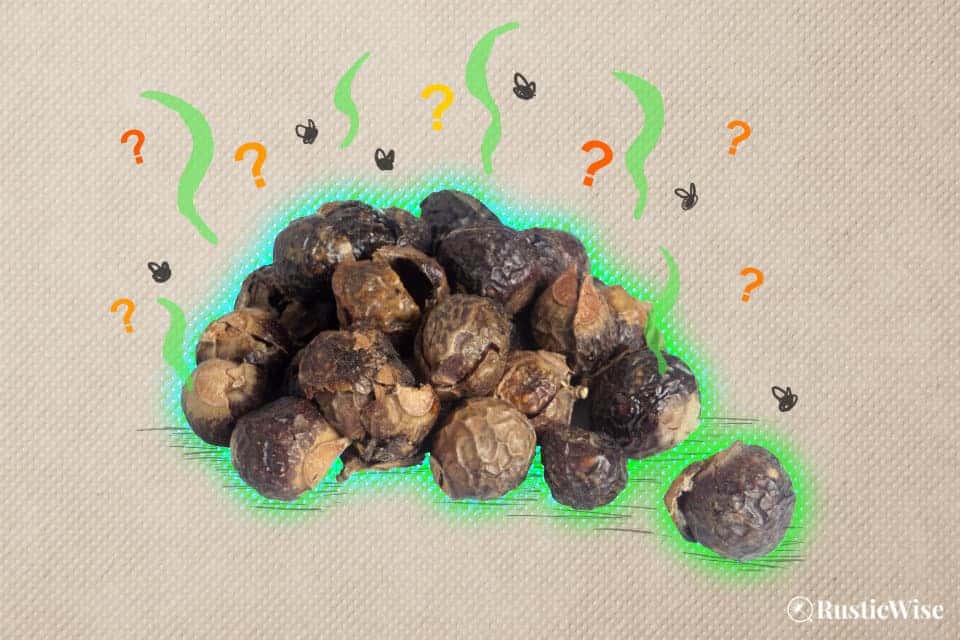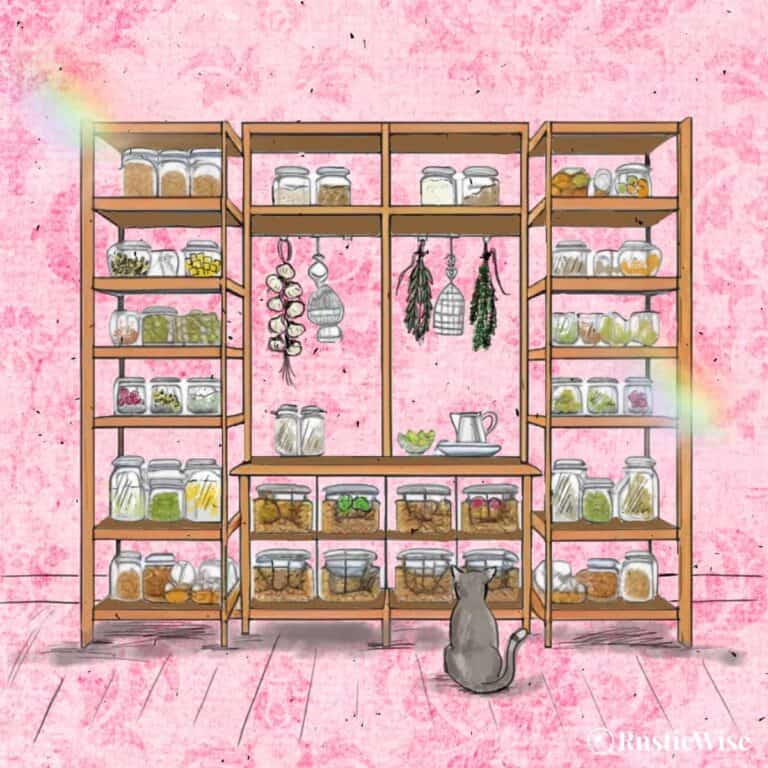Do Soap Nuts Expire? A Guide to Shelf Life and Reusing Soapberries
One would assume that something completely natural and plant-based would have an expiration date. While this is often the case, this guideline does NOT apply to the dried fruits of the soapberry tree.
In the world of natural and green cleaning products, soapberries, also called soap nuts, or laundry nuts, check off many boxes. All natural? Check. Vegan? Check. Biodegradable and compostable? Check. Long shelf life? Check.
If you’ve stumbled upon a package of old soap nuts, you might wonder, do soap nuts expire? No, soapberries do not have an expiration date and may last indefinitely if properly stored away from moisture. However, most suppliers recommend using these sudsy dried shells within 2 years for optimal results.
Let’s look at everything you need to know about how to store soapberries to extend shelf life. Plus, I’ll go over best practices to reuse them.
Soap nuts: a natural and gentle detergent
Soapberries are one of nature’s most amazing offerings. They are the dried shells of the soapberry fruit, which fall under the Sapindaceae family (of which lychee also belongs).
You can find this tree growing in many tropical and subtropical regions around the world. One of the most popular varieties for producing laundry nuts is Sapindus mukorossi, which grows in Nepal, India, China, Vietnam, and other countries in East Asia.¹
What makes these tiny fruits so coveted and useful are the shells which contain saponin—a naturally occurring substance that produces suds. Saponins are essentially natural surfactants.
Soap nut shells contain high levels of saponin; some shells comprise up to 37 percent saponin.²

What exactly are saponins?
Saponins are naturally occurring glycosides that can create suds and lather when they come in contact with water.
Besides soapberries, you can find them in other plants such as broomweed (Gutierrezia sarothrae), cow cockle (Saponaria vaccaria), and most famously, soapwort (Saponaria officinalis).³
Did you know… The latin word “sapo” means soap.³
How do soapberries work to clean?
When you soak soapberries in water (preferably warm or hot water), they release saponins and make a liquid soap. You’ll want to add these dried fruit shells to your list of green cleaners, such as liquid Castile soap.
This natural soap is gentle enough to wash your hair, face, and body. (If you’re interested, we’ve shared a soap nut shampoo recipe here.)
One of its primary uses is as a mild soap, or an alternative laundry detergent. (Some people call them laundry berries, or laundry nuts.) Simply toss a few soapberries into a fabric pouch and add them to your washing machine.
The natural cleaning agent is also safe for most surfaces around the house. It works well on hard surfaces like tiles, glass, stainless steel, and porcelain.
The great thing about using this green cleaner is you don’t have to worry about harsh chemicals (these literally grow on trees, after all).
Many chemical laundry detergents contain ingredients that irritate sensitive skin, particularly dry skin, or eczema. Once I switched to using laundry nuts and ditched my dryer sheets for wool dryer balls, I noticed my daughter’s eczema patches improved!
Do soap nuts expire? Here’s what you need to know
No, soap nuts don’t really expire. They are essentially the dried shells of a fruit tree and, if stored properly, may last indefinitely. However, most suppliers of soapberries recommend using your batch within 2 years for optimal results.
So, what if you have a box of old soapberries that have been sitting on your shelf for years and years?
No worries, those old nuts are still good to go! If you find they produce fewer suds, simply add a few extra nuts as needed.
The best way to store soap nuts
The best way to store laundry berries is in an airtight container at room temperature. A glass mason jar, or Tupperware container works great.
Moisture is the enemy of soap nuts. Maybe you’ve accidentally splashed a bit of water into your box of soapberries. Or perhaps you live in an area with high humidity. You might notice that the leathery shells can get tacky or syrupy.
But, don’t toss them yet! Even if they have become sticky from humidity, they are still perfectly fine to use.
How long does DIY soap nut liquid last?
If you’ve ventured beyond using these nuts for laundry, you may have made your own homemade soap nut liquid as an all-purpose cleaner, or body wash.
Most people make a liquid decoction by boiling a few berries in water and straining. This liquid soap DOES have a best before date.
Introducing water will introduce bacteria, which causes the solution to spoil. In my experience, your liquid DIY soapberry cleaner can last up to 1 week at room temperature. Stick it in the fridge and it may last for up to 2 weeks.
You’ll know it’s time to toss it when it turns slimy, or smells!
Can you reuse soap nuts?
Yes, you can definitely reuse soap nuts multiple times. Most people find they can reuse soapberries between 3 to 5 times, depending on the temperature of water used, the type of water you have at home (hard water vs. soft), etc.
Using hot water will release more of the saponins quickly. So if you regularly use the hot water cycle, you might notice you get fewer loads out of the soapberries.
If you use cold water to launder, you might need to soak your fabric pouch with laundry berries in a container of warm water first. This will help to activate and release the saponins for a more effective clean.
There’s a quick and easy way to tell if there’s still life left in your batch of laundry soapberries: the soak and squeeze test.
Simply place the used soap nuts inside the small fabric bag (most soapberry packages include one). Soak the soap nuts in a container or jar filled with warm water for several minutes. Next, remove the bag from the water and gently squeeze the fabric pouch.
If there’s still life left in that batch of laundry nuts, you’ll see sudsy water (the saponins) being released.
The takeaway: If the laundry nuts release little to no suds, then it’s time to replace your batch and add it to your compost pile. Or, you can simply remove a couple of used soap nuts and add a fresh nut or two to the fabric pouch.
Related questions
Can you use soap nuts if you have a nut allergy?
Yes, soap “nuts” are not actually nuts at all. They are the dried brown fruits or fruit shells of the soapberry tree.
Can you compost soapberries?
Yes, you can safely add the spent shells to your backyard compost pile. Soapberries are 100 percent compostable and biodegradable. These leathery fruits shells of the soapberry plant would provide a great source of carbon to your compost.
Are soapberries antibacterial?
Yes, the berries of the Sapindus mukorossi tree have antimicrobial properties (kills both bacteria and fungi). Studies show that this medicinal tree’s antimicrobial properties may inhibit the growth of tumors, and may help treat eczema and psoriasis.⁴
👉 If you like this post, see other Timeless Cleaning Tips You Need To Know. 🌟
Would you like more timeless tips via email?
Fun tips to help you live an independent, self-sustaining lifestyle. Opt-out at any time.


References
- Plants For A Futre, Sapindus mukorossi – Gaertn., https://pfaf.org/user/Plant.aspx?LatinName=Sapindus+mukorossi. Accessed September 2022.
- Britannica, Soapberry, https://www.britannica.com/plant/soapberry. Accessed September 2022.
- Cornell University, Saponins, https://poisonousplants.ansci.cornell.edu/toxicagents/saponin.html. Accessed September 2022.
- Chen, Chang-Chih et al. “Effects of Sapindus mukorossi Seed Oil on Skin Wound Healing: In Vivo and in Vitro Testing.” International journal of molecular sciences vol. 20,10 2579. 26 May. 2019, doi:10.3390/ijms20102579

Author: Theresa Tesolin
Theresa is co-founder of RusticWise. She helps people unleash their inner DIY spirit by encouraging them to get dirty and make or grow something from scratch.









